SPIKE™ Essential
Big Little Helper
Daniel’s locker is overflowing. How can he get all his things home?
30-45 min.
Beginner
Grades 3-5
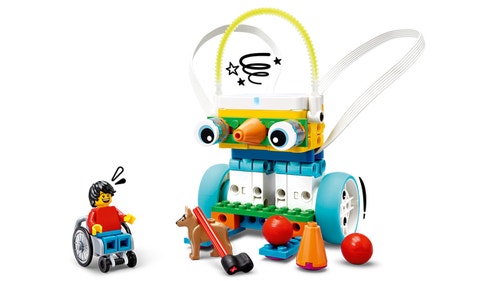
Prepare
- Review the Big Little Helper lesson in the LEGO® Education SPIKE™ App.
- If necessary, pre-teach these related vocabulary words: control, constraint, design, robot, and solution.
- Consider the abilities and backgrounds of all your students. Differentiate the lesson to make it accessible to everyone. See the Differentiation section below for suggestions.
- If time allows, plan and facilitate the math extension. See the Extension section below for more information.
Engage
(Whole Class, 5 Minutes)
- Facilitate a quick discussion about solving a problem that has constraints.
- Talk with your students about moving everything out of your classroom into another one, with one catch. They must finish the move in 10 minutes!
- Ask questions, like: How could you empty the classroom in the shortest amount of time? What if you only had four classmates to help?
- Introduce your students to the story’s main characters and the first challenge: controlling the robot helper.
- Distribute a brick set and a device to each group.
Explore
(Small Groups, 30 Minutes)
- Have your students use the LEGO® Education SPIKE™ App to guide them through their first challenge:
- Create and test the program that controls the robot helper.
- Have your students iterate and test their models to complete the next two challenges in the app:
- Program the robot helper to follow Daniel home.
- Design your own improved robot helper.
- You can find coding and building support in the Tips section below.
Explain
(Whole Class, 5 Minutes)
- Gather your students together to reflect on their completed challenges.
- Ask questions, like: How did you help Daniel get all his belongings home? How is the design of your robot helper different from Daniel’s?
Elaborate
(Whole Class, 5 Minutes)
- Prompt your students to discuss and reflect on ways of creating a possible solution to a problem that has constraints.
- Ask questions, like: Why is it important to consider constraints when designing a solution? How do constraints affect your design process?
- Have your students clean up their workstations.
Evaluate
(Ongoing Throughout the Lesson)
- Ask guiding questions to encourage your students to “think aloud” and explain their thought processes and reasoning in the decisions they've made while building and programming.
Observation Checklist
- Measure your students’ proficiency in creating a possible solution to a problem that has constraints.
- Create a scale that matches your needs. For example:
- Needs additional support
- Can work independently
- Can teach others
Self-Assessment
- Have each student choose the brick that they feel best represents their performance.
- Yellow: I think I can create a solution to a problem that has constraints.
- Blue: I can create a solution to a problem that has constraints.
- Green: I can create a solution to a problem that has constraints, and I can help a friend do it too.
Peer-Feedback
- In their small groups, have your students discuss their experiences working together.
- Encourage them to use statements like these:
- I liked it when you…
- I'd like to hear more about how you…
Tips
Coding Tip
- After your students complete their first challenge, they'll be provided with a map.
- Your students can use the map and experiment with the available Coding Blocks to modify their programs to follow the route for the trip.
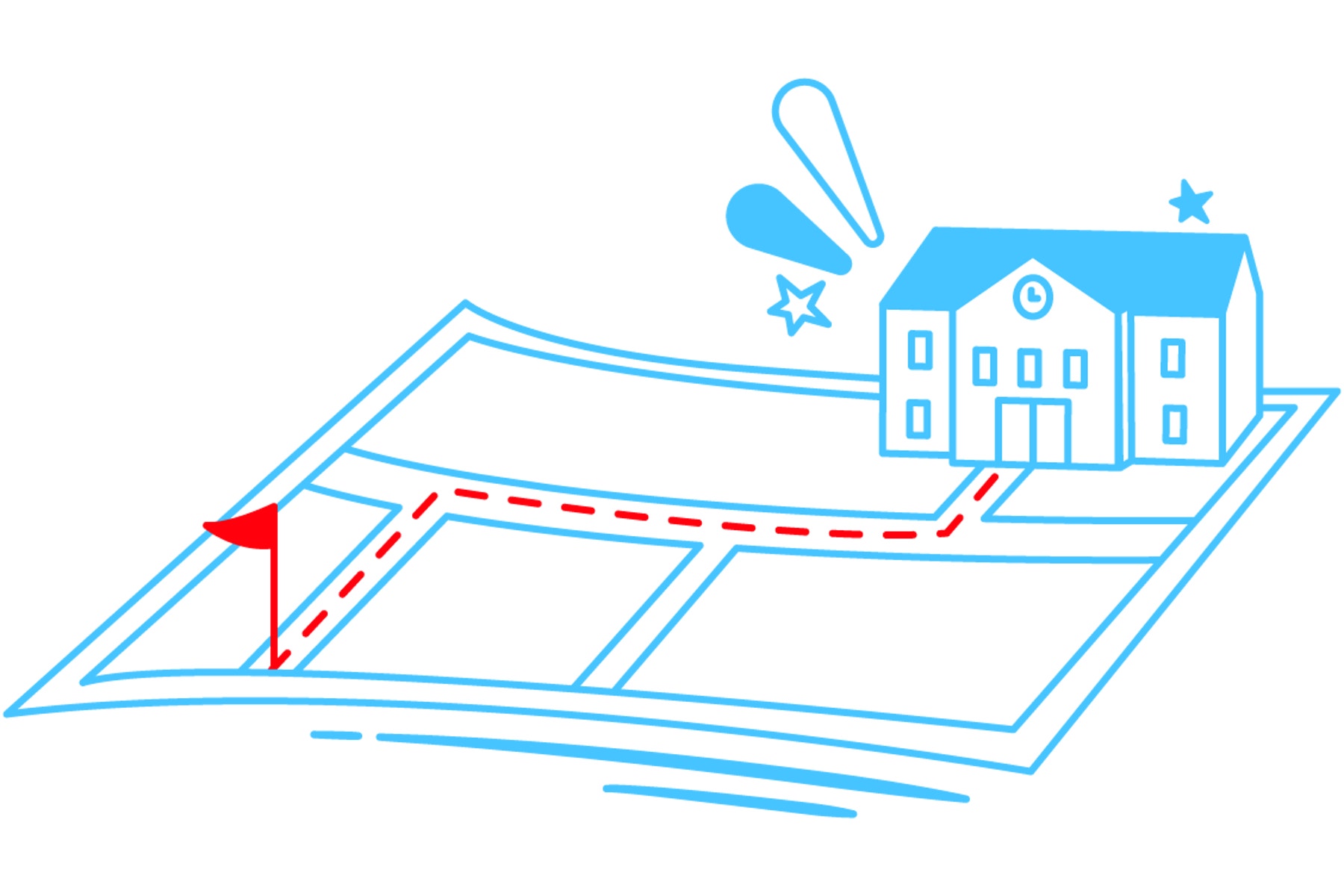
Model Tip
- After your students complete their second challenge, they’ll be provided with three Inspiration Images and an open-ended prompt for improving their models.
- The Inspiration Images are to help spark their imaginations as they experiment and personalize their models.
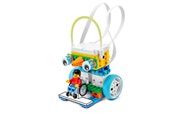

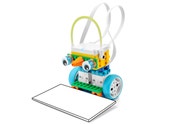
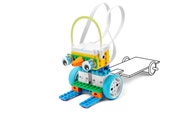
There aren't any building instructions for this challenge.
Differentiation
Simplify this lesson by:
- Selecting one Inspiration Image to help your students personalize their models
- Experimenting with either the coding or the building
Increase the difficulty by:
- Designing different bases to assist the robot helper in carrying Daniel's things
- Programming the robot helper to follow a predetermined route
Extension
- Have your students use graph points to map the robot helper's path. They should use the x- and y-axis to plot where the robot helper travels. They can also plot the path of another group’s helper.
If facilitated, this will extend beyond the 45-minute lesson.
Math: CCSS.MATH.CONTENT.5.G.A.1
Teacher Support
Students will:
- Create a possible solution to a problem that has constraints
- Improve on others’ ideas to develop a new program
- Engage effectively in a range of collaborative discussions
(one for every two students)
- LEGO® Education SPIKE™ Essential Set
- Device with the LEGO® Education SPIKE™ App installed
- CSTA 1B-AP-08
- NGSS 3-5 ETS1-2
- ISTE 1.4c
- CCSS.ELA-LITERACY.SL.5.1
Math Extension
- CCSS.MATH.CONTENT.5.G.A.1